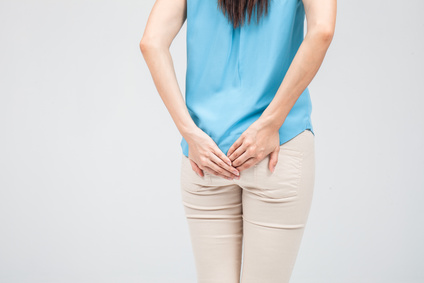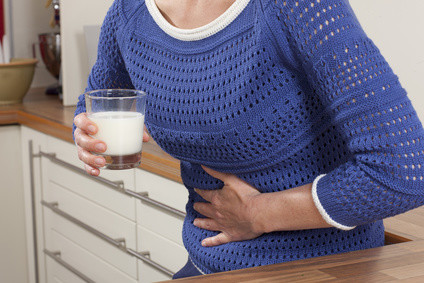Flatus After Eating and During Meals, Causes and Diseases
Flatus refers to gas passed out of the rectum, or as a ‘fart’ as it is commonly known. Although it is the source of much amusement in the media, passing flatus (flatulence) is normal for the healthy body. The problem arises when flatus is excessive and uncontrollable. We all consider it normal to pass out some gas from our mouth (a belch or burp) during and just after eating.
However, when we repeatedly pass flatus around meal time we tend to think that this may be abnormal. It is a misconception that the food and drink consumed has reached the other end of the alimentary tract. This is not the case. Flatus during and immediately after meals is not from the food you just ate. It occurs for other reasons.
Normal Flatulence Habits
Most digestive gas is air. It is a result of swallowing air (usually unconsciously) when eating, drinking and talking. This is known as aerophagia. Mouth breathers tend to swallow more air and this may be due to a blocked nose or respiratory problems.
A large amount of this swallowed air is passed out as a belch (burp) but some continues to the lower parts of the digestive tract. It cannot escape through the mouth from here. Some gas is also produced within the bowels. This includes the gas released from the chemical digestion of food and the gas produced by bacteria that lives naturally in the bowels.
These bacteria ferment undigested food in the bowels and are one of the main producers of the smelly gases that emanate with flatus (a ‘fart’). There is always some gas present in the digestive tract at any time. When the gas builds up significantly, we feel the urge to pass it out. Sometimes we cannot help but expel this gas involuntarily.

Most times we can find an appropriate place to pass out flatus. The process of flatus involves increasing abdominal pressure (squeezing the abs) and relaxing the anal sphincters only momentarily to allow the gas to pass out. Sometimes a noise is produced but at other times it can be silent.
The duration of the passing of the gas can also vary. The exact quantity of gas that may be present within human bowels cannot be definitively measured. It is estimated to be between 1,000 to 2,000 mL of gas at the peak but never less than 200mL of gas at its lowest.
However, in order for a person to pass flatus there has to be sufficient gas in the lowest part of the large intestine. Below are some of the possible causes of flatulence that is more likely to arise during and after eating. There are many other possible causes as well. This pattern of flatulence may be a symptom of some disease.
Large Meals and Overeating
Eating a large meal, which is well beyond your normal eating habits, can trigger bowel reflexes that may promote flatulence. This is normal and can happen to most people. Certain activity in one part of the bowel triggers actions in another part of the bowel.

Many of these nerve reflexes which may play a part in defecation and flatulence arise by stimulating mass movement in the colon when the stomach or duodenum (first part of the small intestine) are stretched with food. These mass movements can push the gas that is already in the lower bowels until there is a sufficient quantity to be passed out.
Irritable Bowel Syndrome (IBS)
Irritable bowel syndrome (IBS) is a functional bowel disorder where the movement through the digestive tract is either faster (diarrhea-predominant IBS) or slower (constipation-predominant IBS) than normal. It is not a disease. Many people with IBS report abnormalities like feeling the urge to defecate or even diarrhea after eating.
Although food may not be a cause, eating can sometimes be a trigger. The same bowel reflexes that are responsible for defecation may be exaggerated in IBS leading to gas being pushed into the lower bowels during and immediately after eating.
Inflammatory Bowel Disease (IBD)
Inflammatory bowel disease is a condition where there is inflammation in parts of the digestive tract. The large intestine is one of the more commonly affected sites. There are two types of IBD – ulcerative colitis and Crohn’s disease. The exact cause of IBD is not fully understood.

It is believed that the inflammation may be due to autoimmune factors. A range of bowel symptoms are present, such as diarrhea and bouts of constipation, mucus and sometimes blood in the stool, abdominal pain and cramping. Certain foods may exacerbate the condition but are not the cause of IBD.
Food Intolerance
Food intolerances arise from a deficiency or lack of specific digestive enzymes that are responsible for breaking down certain nutrients. One of the most common is lactose intolerance where the deficiency of the enzyme lactase hampers the digestion of lactose (a milk carbohydrate).
Sugar intolerance (sucrase-isomaltase deficiency) is due to a lack of the enzyme sucrase. These undigested nutrients can irritate the lining and promote bacterial overgrowth. As a s result a range of digestive symptoms may arise including diarrhea, abdominal cramping and excessive flatulence.
Infectious Gastroenteritis
Gastroenteritis is a common acute condition where the stomach and bowels become inflamed. It is mainly due to an infection. Viruses are a common cause, followed by bacteria. The digestive symptoms in infectious gastroenteritis are usually intense and include nausea, vomiting, diarrhea and abdominal cramping.
Eating food or drinking water can sometimes trigger vomiting and diarrhea. Excessive flatulence is also a problem. However, gastroenteritis is usually short-lived and resolves within a few days, often without any treatment beyond supportive measures to prevent dehydration.
Anxiety and Stress
The psychogenic component of many bowel problems, especially in conditions like irritable bowel syndrome, is well known. Psychological stress is often listed among the triggers, exacerbating factors and risks for several conditions. Even in the absence of these bowel disorders, anxiety and psychological stress may cause momentary disturbances in normal bowel activity.
Diarrhea and constipation are known to be aggravated by anxiety and psychological stress. The same applies to excessive flatulence or nervous farting as it is known. Anxiety and psychological stress may therefore be the underlying cause of flatulence during and after meals in some cases.
Last updated on September 28, 2018.



